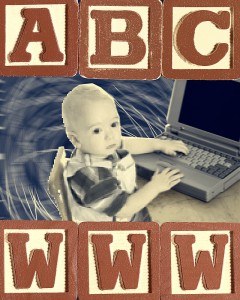That Lovin’ Feelin': Creative celebration
We’ve lost that lovin’ feelin’…
Remember how it feels to complete a project you are proud of? As teachers, the “projects” we complete are most often teaching tasks, such as getting our grades in on time or commenting on ALL our students’ drafts or completing rubrics for 20-150 projects. Rarely do we celebrate something we have created. Our creative process — and a valuable one it is!– is most often applied to generating lesson ideas or coming up with a way to engage a struggling student. We just don’t have as many chances to proudly celebrate and share something we create.
Earlier this week, I found that feeling again. After a manic, messy, and thrilling creative push, TeachersFirst proudly announced Gettysburg by the Numbers, a way to learn about the watershed moment in the Civil War through infographics, data, and questions that are meaningful to us today– especially if you happen to be in middle school or early high school.
It feels good. It feels really good. It feels good enough to make me wonder how many of our students get to experience that feeling. If we do our jobs well as teachers, they may experience it with authentic projects. But do we, as teachers, experience it enough to really know what kind of projects we should be designing and assigning? Do we know the experience of that lovin’ feelin about something we create? I don’t believe we can be effective as teachers unless we do. If we do not create things we are proud of –with some regularity–how can we really understand “authentic”?
I suggest that each of us should start by creating a me-portfolio where we can exhibit and share the lovin’ feelin’ moments we do have, however few and far between. Set up a simple web page using Infinite.ly or Loose Leaves or Weebly and embed things you create elsewhere on the web (loads of tips here). You could even house it on a simple wiki. What do you include? The sample projects you made to show kids how GoAnimate works or your Voki that explains meter in poetry. If you, like me, play with the tech toys and create samples as models of just to help you “figure it out,” save the samples as creative products of your own. There is a very good chance you will find yourself making better examples because you are collecting them– and getting that feeling. And you would be modeling a me-portfolio that you can show to kids. There is nothing wrong with letting your students know that you like that lovin’ feelin’, and you hope you can all find it together.

















